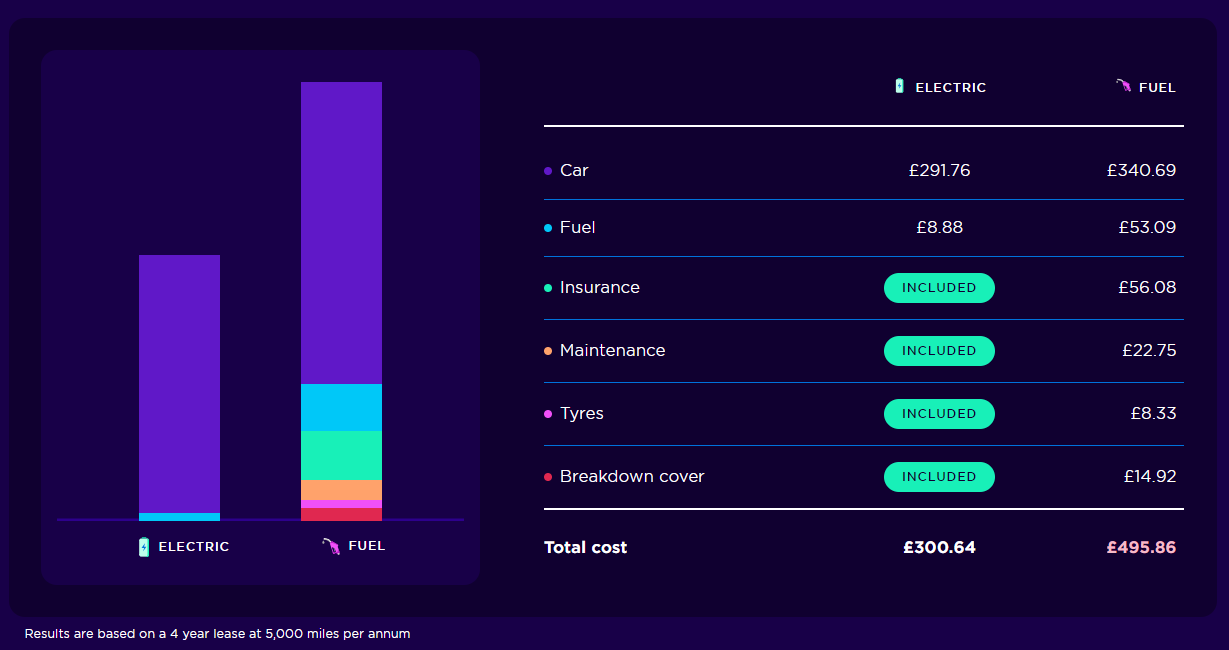Accelerating Towards a Greener Future

The Power of Cycle to Work and Salary Sacrifice Car Schemes in Promoting Electric Vehicles
Summary
- The Cycle to Work scheme emerges as a simple yet effective way for companies to encourage sustainable commuting habits among their employees
- On average, a daily 5-mile cycle commute saves around 2,000 grams of CO2 emissions compared to driving
- Offering employees the chance to lease an electric vehicle through salary sacrifice not only lowers their carbon footprint but also aligns with the company’s commitment to corporate social responsibility
- According to a report by Cyclescheme, an estimated 1.6 million people in the UK have participated in the Cycle to Work scheme, saving over £300 million collectively
- The running costs of electric vehicles are estimated to be 3-4 times lower than those of petrol or diesel vehicles, according to a study by the European Alternative Fuels Observatory
The pursuit of sustainability has become more crucial than ever. As we navigate the challenges of climate change, businesses play a pivotal role in driving positive environmental change. One innovative approach gaining traction is the integration of employee benefits programmes that not only prioritise the well-being of the workforce but also contribute significantly to the global shift towards carbon neutrality. Claritas have made the decision to continue on our carbon net zero journey with introducing a Cycle to Work scheme and a Salary Sacrifice Car scheme focused on electric vehicles.
The Green Revolution at the Workplace
1. Cycle to Work Scheme: A Healthy and Eco-Friendly Commute
Commuting is an inevitable part of our daily lives, and the choices we make can have a profound impact on the environment. The Cycle to Work scheme emerges as a simple yet effective way for companies to encourage sustainable commuting habits among their employees.
By offering our employees the opportunity to purchase a bicycle through salary sacrifice, we can not only promote a healthier lifestyle but also help reduce their carbon footprint. According to a study by the European Cyclists’ Federation, cycling produces zero emissions, making it an eco-friendly mode of transportation.
Statistics:
• On average, a daily 5-mile cycle commute saves around 2,000 grams of CO2 emissions compared to driving.
• Increased cycling participation is linked to reduced rates of cardiovascular diseases, contributing to a healthier workforce.
2. Salary Sacrifice Car Scheme: Paving the Way for Electric Vehicles
In the quest for a sustainable future, the transportation sector is a critical battleground. The Salary Sacrifice Car scheme, when tailored to electric vehicles (EVs), becomes a powerful tool for companies like ourselves to support the adoption of green technologies. Offering employees the chance to lease an electric vehicle through salary sacrifice not only lowers their carbon footprint but also aligns with the company’s commitment to our own corporate social responsibility. The reduction in emissions from electric vehicles significantly contributes to the overarching goal of achieving carbon neutrality.
Statistics:
• Electric vehicles produce, on average, 40-50% fewer greenhouse gas emissions than their traditional counterparts, according to the Union of Concerned Scientists.
• The International Energy Agency predicts that by 2030, electric cars could reduce CO2 emissions by 1.5 gigatons per year, playing a pivotal role in mitigating climate change.
The Financial Benefits for Employees
1. Tax Savings and Financial Incentives
Implementing both the Cycle to Work and Salary Sacrifice Car schemes provides our employees with tangible financial benefits. Through salary sacrifice, employees can avail themselves of tax savings, as the cost of the bicycle or electric vehicle is deducted from their gross salary before tax.
In the UK, for example, employees can save up to 42% on the cost of a new bike through the Cycle to Work scheme. Similarly, by choosing an electric vehicle through the Salary Sacrifice Car scheme, employees can benefit from reduced income tax and National Insurance contributions.
Statistics:
• According to a report by Cyclescheme, an estimated 1.6 million people in the UK have participated in the Cycle to Work scheme, saving over £300 million collectively.
2. Reduced Fuel and Maintenance Costs
Electric vehicles are renowned for their efficiency and lower operational costs compared to traditional internal combustion engine vehicles. By opting for an electric vehicle through a Salary Sacrifice Car scheme, employees stand to save considerably on their fuel expenses, contributing to their overall financial well-being.
Additionally, electric vehicles generally require less maintenance than their petrol or diesel counterparts, translating to further savings for employees.

Statistics:
• The running costs of electric vehicles are estimated to be 3-4 times lower than those of petrol or diesel vehicles, according to a study by the European Alternative Fuels Observatory.
Environmental Impact and Carbon Net Zero
1. Reduced Carbon Emissions
The combined impact of promoting cycling and electric vehicles through our employee benefit schemes will hopefully help with a substantial reduction in carbon emissions. Cycling is a zero-emission mode of transport, while electric vehicles significantly lower greenhouse gas emissions compared to traditional vehicles.
Statistics:
• The European Cyclists’ Federation estimates that if 10% of all short car trips were replaced by cycling, carbon emissions could be reduced by 26%.
2. Aligning with Corporate Social Responsibility (CSR) Goals
These green initiatives signal our commitment to environmental responsibility as part of our CSR goals.
Statistics:
• According to a Nielsen study, 66% of consumers are willing to pay more for products and services from companies committed to positive social and environmental impact.
Conclusion
It’s imperative for companies to adapt and embrace initiatives that contribute to a sustainable future. The introduction of a Cycle to Work scheme and a Salary Sacrifice Car scheme focused on electric vehicles to our business not only fosters employee well-being and financial savings but also significantly aids in the global endeavour to achieve carbon neutrality.
As we harness the power of innovative employee benefits, we not only propel our business forward but also accelerate towards a greener, more sustainable tomorrow. So, let’s pedal and drive our way into a future where environmental consciousness is not just a choice but a collective responsibility.



